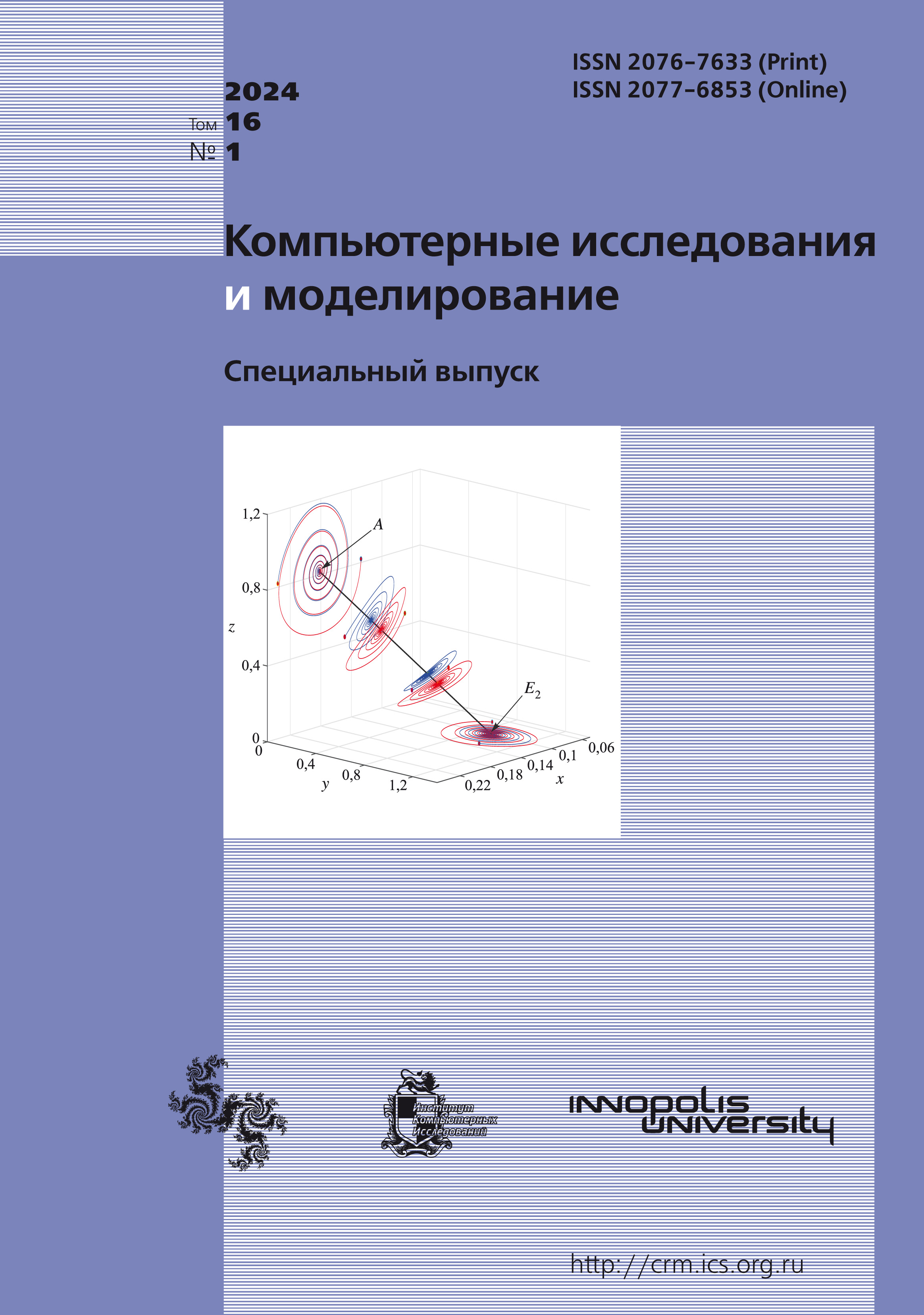All issues
- 2025 Vol. 17
- 2024 Vol. 16
- 2023 Vol. 15
- 2022 Vol. 14
- 2021 Vol. 13
- 2020 Vol. 12
- 2019 Vol. 11
- 2018 Vol. 10
- 2017 Vol. 9
- 2016 Vol. 8
- 2015 Vol. 7
- 2014 Vol. 6
- 2013 Vol. 5
- 2012 Vol. 4
- 2011 Vol. 3
- 2010 Vol. 2
- 2009 Vol. 1
Framework sumo-atclib for adaptive traffic control modeling
 pdf (605K)
pdf (605K)
This article proposes the sumo-atclib framework, which provides a convenient uniform interface for testing adaptive control algorithms with different limitations, for example, restrictions on phase durations, phase sequences, restrictions on the minimum time between control actions, which uses the open source microscopic transport modeling environment SUMO. The framework shares the functionality of controllers (class TrafficController) and a monitoring and detection system (class StateObserver), which repeats the architecture of real traffic light objects and adaptive control systems and simplifies the testing of new algorithms, since combinations of different controllers and vehicle detection systems can be freely varied. Also, unlike most existing solutions, the road class Road has been added, which combines a set of lanes, this allows, for example, to determine the adjacency of regulated intersections, in cases when the number of lanes changes on the way from one intersection to another, and therefore the road graph is divided into several edges. At the same time, the algorithms themselves use the same interface and are abstracted from the specific parameters of the detectors, network topologies, that is, it is assumed that this solution will allow the transport engineer to test ready-made algorithms for a new scenario, without the need to adapt them to new conditions, which speeds up the development process of the control system, and reduces design overhead. At the moment, the package contains examples of MaxPressure algorithms and the Q-learning reinforcement learning method, the database of examples is also being updated. The framework also includes a set of SUMO scripts for testing algorithms, which includes both synthetic maps and well-verified SUMO scripts such as Cologne and Ingolstadt. In addition, the framework provides a set of automatically calculated metrics, such as total travel time, delay time, average speed; the framework also provides a ready-made example for visualization of metrics.
Copyright © 2024 Kazorin V.I., Kholodov Y.A.
Indexed in Scopus
Full-text version of the journal is also available on the web site of the scientific electronic library eLIBRARY.RU
The journal is included in the Russian Science Citation Index
The journal is included in the RSCI
International Interdisciplinary Conference "Mathematics. Computing. Education"






